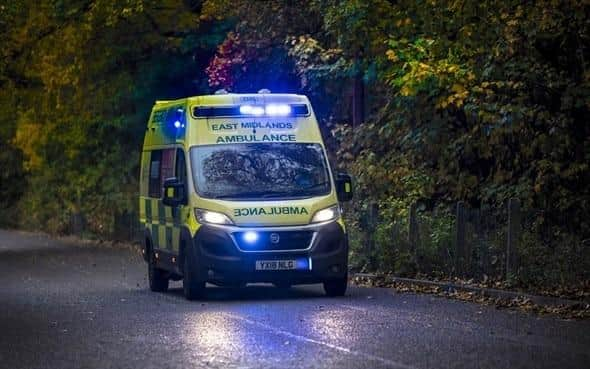‘Long way to go’ for EMAS to reduce response times for category two calls
and live on Freeview channel 276
In January, the NHS and Government set out national targets for ambulance services to have a mean average response time for ‘category two’ calls of 30 minutes for 2023/24.
The overall response time target remains at 18 minutes, which will be expected of all services by 2024/25.
Advertisement
Hide AdAdvertisement
Hide AdHowever, as of March, EMAS has an average response time of 50 minutes for ‘category two’ calls.


‘Category one’ classified calls are emergencies involving people with the most serious life-threatening injuries and illnesses, while ‘category two’ is for other calls still classed as emergencies. Category three is for urgent calls and category four is for less urgent calls.
Richard Henderson, EMAS chief executive, told the latest EMAS board meeting: “We all know that from a delivery perspective, performance was not where any one of us would’ve wanted it to be.
“I am confident we will start seeing an improvement as we move through this year.”
Advertisement
Hide AdAdvertisement
Hide AdJeff Worrall, non-executive director, said: “At the moment we are at 50 minutes, so there’s a long way to go. We need to start to see the trajectory against that because it is still quite a distance to get to.”
Jackie Jones, associate non-executive director, said: “The focus next year is going to be around bringing category two down to 30 minutes, but category three is nearly five hours above the standard.
“There’s a risk everybody focuses on bringing category two down and category three gets forgotten.”
Mr Henderson said the trust’s focus will “remain on all categories”.
Advertisement
Hide AdAdvertisement
Hide AdHe said: “We know the right thing to do for patients is to get there as quickly as possible and to maintain our focus on speed of response.
“Last year was extremely challenging for a variety of reasons.
“Given our starting position this year and all the plans in place, we know we will see improvements in delivery, patient experience, patient outcome and staff welfare.”
Karen Tomlinson, board chairman, said: “Performance has got to improve, there is no question about it. We’ve got to push on that and make sure we do deliver.”